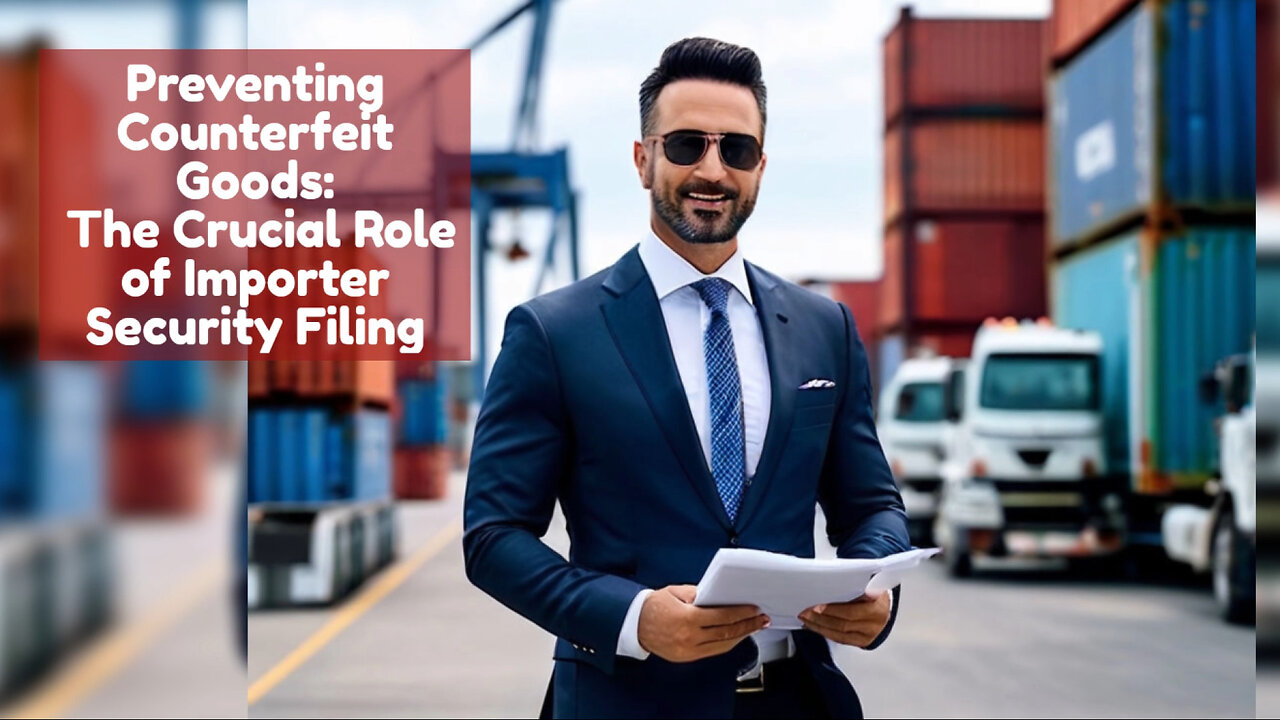Premium Only Content

Preventing Counterfeit Goods: The Crucial Role of Importer Security Filing
License To Import // 323-578-6432 // file@licensetoimport.com // www.licensetoimport.com
In this video, we delve into the role of Importer Security Filing (ISF) in preventing the smuggling of counterfeit goods. ISF, also known as 10+2, is a requirement set by the US Customs and Border Protection (CBP) for ocean shipments entering the United States. By providing detailed information about the cargo in advance, ISF enables the CBP to analyze the shipment and identify any red flags that may indicate the presence of counterfeit goods. Additionally, the ISF filing helps the CBP in performing risk assessment by evaluating the cargo against various criteria. The collaboration between the CBP and other agencies, facilitated by ISF, plays a crucial role in preventing counterfeit goods from entering the market. Compliance with ISF requirements is essential to avoid penalties and ensure a successful import operation.
#usimportbond #isfcustomsbroker #uscustomsclearing #isfentry
Video Disclaimer Here: This video is solely for education and is not endorsed by any US government agency.
00:37 - Importer Security Filing (ISF), also known as 10+2, is crucial in preventing the smuggling of counterfeit goods into the United States.
01:03 - ISF requires importers to provide detailed information about their cargo at least 24 hours prior to its departure from the foreign port.
01:36 - ISF helps in preventing counterfeit goods by providing accurate information about imported cargo, allowing CBP to identify red flags and perform effective risk assessments.
02:03 - Collaboration between CBP and other agencies is facilitated by ISF, helping to prevent counterfeit goods from entering the market and safeguarding the economy and public safety.
-
 1:50
1:50
License To Import
4 days agoWho File ISF For Oil Lamps And Accessories
101 -
 33:41
33:41
The Finance Hub
4 hours ago $0.49 earnedBREAKING: NANCY PELOSI JUST GOT HIT WITH A MAJOR BOMBSHELL!!!
5.59K4 -
 LIVE
LIVE
LFA TV
21 hours agoLFA TV ALL DAY STREAM - WEDNESDAY 7/30/25
1,304 watching -
 LIVE
LIVE
Barry Cunningham
2 hours agoPRESIDENT TRUMP SPEECH AT MAKING HEALTH TECHNOLOGY GREAT AGAIN! EVENT AND MORE NEWS!
1,534 watching -
 2:04:14
2:04:14
Pop Culture Crisis
3 hours agoOprah Tsunami BACKLASH, Billie Eilish RACIST? Joey Swoll BENDS THE KNEE | Ep. 888
22.3K4 -
 1:22:25
1:22:25
The HotSeat
2 hours agoLibs Are BIG Mad Over New Commercials and The Fed Is Just Another Political Weapon
15.4K5 -
 LIVE
LIVE
Film Threat
6 hours agoSAN DIEGO COMIC-CON! FANTASTIC FALL OUT FOR MARVEL | Hollywood on the Rocks
79 watching -
![[Ep 717] NEVER Apologize to The Counterculture Mob! Be You, Be True | Oprah & “Elites” God Complex](https://1a-1791.com/video/fww1/81/s8/1/-/G/X/6/-GX6y.0kob.1-small-Ep-717-NEVER-Apologize-to-T.jpg) LIVE
LIVE
The Nunn Report - w/ Dan Nunn
2 hours ago[Ep 717] NEVER Apologize to The Counterculture Mob! Be You, Be True | Oprah & “Elites” God Complex
151 watching -
 1:38:10
1:38:10
The Quartering
4 hours agoKash Patel "Discovers" Secret FBI Files On Trump, NYC Shooter New Conspiracy, Planned Parenthood
131K20 -
 56:56
56:56
Crypto Power Hour
4 hours ago $1.21 earnedSmart Contracts On The Blockchain
18.5K9